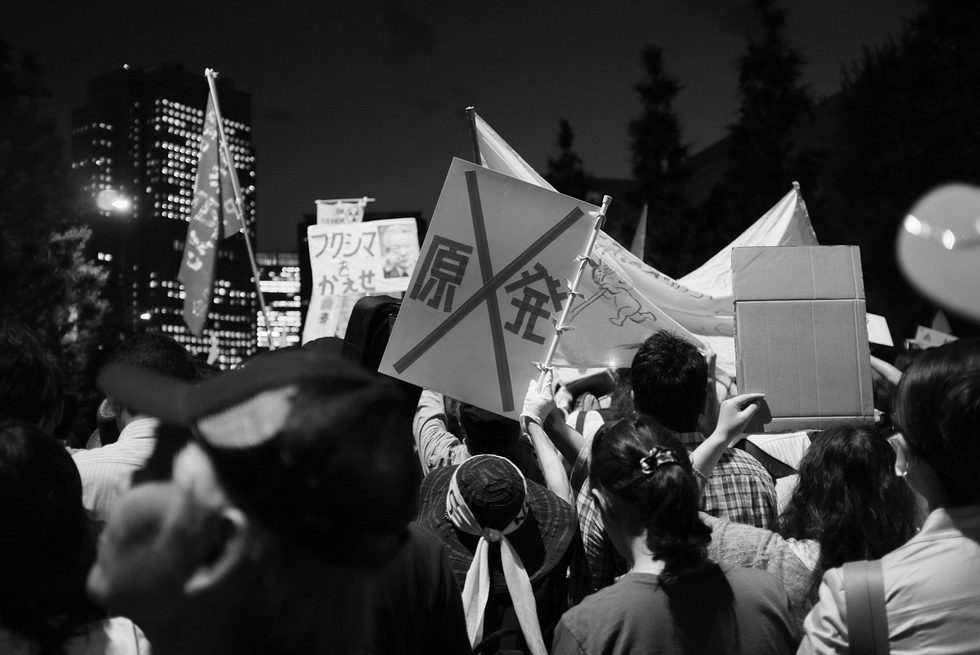Meaningful Play
From the Series: 3.11 Politics in Disaster Japan: Ten Years Later
From the Series: 3.11 Politics in Disaster Japan: Ten Years Later

Science fiction, rather than science, seems to be dictating reality in the decade after 3.11. The post-apocalyptic eighties manga AKIRA predicted the Olympics would be planned and then cancelled in Tokyo in 2020. Even more eerily, AKIRA suggested the government’s countermeasures against an infectious disease would prove inadequate, and that Tokyo would be devastated by a force called “Corona” if authorities coerced the population into participating in an empty Olympic stadium. While it seemed outside the realm of possibility when the protest groups Hangorin no Kai, Okotowalink, and NOlympics first called for the cancellation of the egregiously named “recovery Games,” today an overwhelming majority of the population believes the Tokyo Olympics should not be held during an uncontrolled global pandemic.
As authorities fail to provide adequate science-based responses to both the lingering triple disaster and the global pandemic, I’ve been reminded of Tetsuo Najita’s work on mutual aid that fills the void when governments fail their people. Since 3.11 and especially in the last year, mutual aid continues to serve and empower local networks. Inspired by creative practice ethnography as a means of researching mutual aid, local currency, and sustainability initiatives in contemporary rural Japan, I’ve been co-creating and workshopping Our/Awa Money, a board game based on both current rural initiatives and yet-to-be realized alternative futures. Though distanced from my co-creators this year, the spirit of our collaborations has made its way into my online classroom. This term, seminar participants in “Politics of the Archive” co-created an online board game, Access Archive, tackling the urgent need to decolonize institutional archives, support community archives, and explore sensory, second life, and speculative archives that serve and engage communities in new ways. Creating a playable game that reflects, in both form and content, the challenges and possibilities of archives in less than three weeks was only possible through the collective energy, imagination, and collaboration of dispersed but engaged participants. Together they creatively reimagined the limitations of the zoomasphere and repurposed readily available productivity tools for meaningful play: Google Sheets were conjured into a navigable image-filled gameboard; and “card decks” for each archive were organized into a numbered table with cards “drawn” by an online random number generator in place of dice. Some cards directed players to move forward if best archival practices were followed, others tested the teams’ knowledge of specific archives, and wild cards were interspersed to mirror the unpredictability of life under COVID-19. Imagine what we could achieve if we rejected the bureaucratic games being played since 3.11 and chose instead meaningful play that moves us toward collective responsibility to others and the future.
Read Sharon Hayashi’s essay “Representational Discontent,” published July 26, 2011.